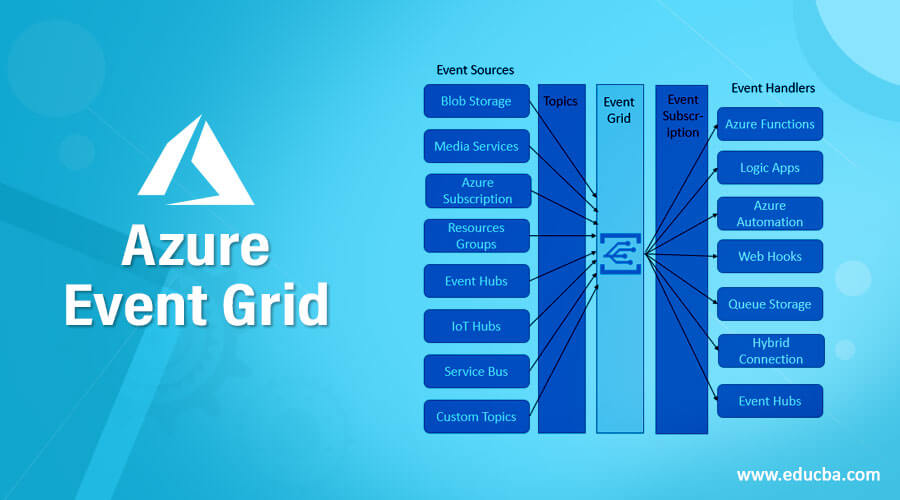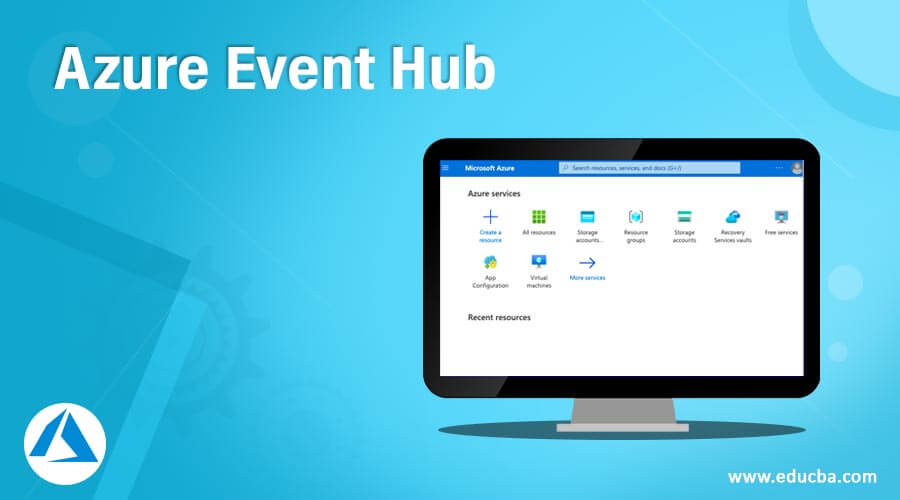Understanding Azure Event Hub and Consumer Groups
Azure Event Hub is a powerful, fully managed platform designed for ingesting and processing vast amounts of data in real-time. This highly scalable service is part of Azure’s messaging infrastructure, enabling you to handle millions of events per second. With its event-driven architecture, Azure Event Hub simplifies the process of collecting, storing, and transforming data from various sources, such as websites, applications, and IoT devices.
At the core of Azure Event Hub’s functionality lies the concept of Consumer Groups. These entities allow multiple applications or consumers to read from the same Event Hub data stream independently and concurrently. Each Consumer Group maintains its own cursor or position within the event stream, ensuring that no data is lost or duplicated during the consumption process. This feature is particularly useful when working with multiple consumers or applications that require different levels of data processing and analysis.
Why Azure Event Hub Consumer Groups Matter
Azure Event Hub Consumer Groups offer numerous benefits for developers and organizations working with data-intensive applications and systems. By enabling independent, parallel consumption of the same Event Hub data stream, Consumer Groups empower you to:
- Load balance: Distribute data processing tasks among multiple consumers or applications, ensuring optimal resource utilization and preventing bottlenecks.
- Isolate: Separate data consumption for specific use cases or applications, allowing for more targeted processing and analysis.
- Flexibility: Process data with multiple consumers or applications, providing the freedom to choose the most appropriate tools and techniques for each scenario.
Moreover, Consumer Groups in Azure Event Hub facilitate the development of event-driven architectures, where events trigger specific actions or processes. This approach simplifies the design and implementation of complex, distributed systems, enhancing their scalability, resilience, and maintainability.
How to Create an Azure Event Hub Consumer Group
Creating a Consumer Group in Azure Event Hub is a straightforward process that can be accomplished through the Azure portal. Follow these steps to create a new Consumer Group:
- Navigate to the Azure portal (https://portal.azure.com/) and sign in with your Azure account.
- In the left-hand menu, click on “All services” and search for “Event Hubs“. Select the Event Hub namespace where you want to create the Consumer Group.
- From the namespace page, click on “Event Hubs” in the left-hand menu, then select the specific Event Hub for which you want to create a Consumer Group.
- Click on “Consumer Groups” in the left-hand menu, then click the “+ Add Consumer Group” button.
- Enter a unique “Name” for your Consumer Group, following best practices for naming conventions and resource organization. Click “Create” to finalize the process.
When creating a Consumer Group, consider the following best practices:
- Use descriptive and meaningful names for your Consumer Groups, reflecting their purpose or associated applications.
- Organize Consumer Groups within namespaces and Event Hubs based on your application architecture and resource management strategy.
- Limit the number of Consumer Groups per Event Hub to minimize complexity and improve manageability.
Effective Strategies for Managing Azure Event Hub Consumer Groups
Managing and monitoring Azure Event Hub Consumer Groups effectively is crucial for ensuring optimal performance and data processing. Consider the following expert tips and techniques:
Handling throttling
Azure Event Hub imposes throttling limits to prevent overconsumption and maintain system stability. When approaching these limits, consider the following:
- Monitor the “Throughput units” metric in Azure Monitor to track your Event Hub’s usage and adjust as necessary.
- Implement backpressure strategies in your consumer applications to control the data flow and prevent overwhelming the Event Hub.
Optimizing performance
To maximize the performance of your Azure Event Hub Consumer Groups, consider the following:
- Partition distribution: Ensure that partitions are evenly distributed among consumers to balance the workload.
- Batching: Utilize batching to improve throughput by processing multiple events simultaneously.
- Concurrency: Adjust the number of concurrent calls to the Event Hub based on your specific use case and resource availability.
Setting up alerts and notifications
Configure alerts and notifications in Azure Monitor to stay informed about critical events and resource usage:
- Create alerts based on specific metrics, such as “Throughput units“, “Incoming messages“, or “Failed requests“.
- Define action groups to specify the recipients and methods for receiving notifications, such as email, SMS, or webhooks.
Popular Use Cases for Azure Event Hub Consumer Groups
Azure Event Hub Consumer Groups are essential in various real-world scenarios, enabling efficient and flexible data processing. Here are some popular use cases:
IoT device telemetry
In IoT applications, devices generate vast amounts of data that need to be processed and analyzed in real-time. Azure Event Hub Consumer Groups facilitate parallel consumption of this data by different components, such as data ingestion, processing, and analysis systems.
Log aggregation
Centralized logging is crucial for monitoring and troubleshooting distributed systems. Azure Event Hub Consumer Groups allow multiple log processing and analysis tools to consume the same log data stream, ensuring a unified view of system events and reducing the risk of data discrepancies.
Event-driven architectures
Event-driven architectures rely on events to trigger specific actions or processes. Azure Event Hub Consumer Groups enable multiple event handlers to consume and process events independently, enhancing system resilience and maintainability.
Real-time analytics
Azure Event Hub Consumer Groups empower data-intensive applications to perform real-time analytics by enabling parallel processing and consumption of data streams. This capability is particularly useful in scenarios such as fraud detection, social media monitoring, and recommendation engines.
Data migration and transformation
Data migration and transformation projects often involve moving and transforming large volumes of data between systems. Azure Event Hub Consumer Groups simplify this process by allowing multiple consumers to process and transform data concurrently, reducing the overall migration time and effort.
Comparing Azure Event Hub Consumer Groups with Alternatives
Azure Event Hub Consumer Groups offer numerous benefits for data streaming and processing, but how do they stack up against other popular solutions? Let’s explore how Consumer Groups compare to Apache Kafka, Amazon Kinesis, and Google Cloud Pub/Sub.
Azure Event Hub Consumer Groups vs. Apache Kafka
Both Azure Event Hub and Apache Kafka support high-throughput, real-time data streaming and processing. However, there are some key differences:
- Managed service: Azure Event Hub is a fully managed service, while Apache Kafka requires self-management and infrastructure provisioning.
- Scalability: Azure Event Hub offers near-infinite scalability, while Apache Kafka requires manual scaling.
- Integration: Azure Event Hub integrates seamlessly with other Azure services, while Apache Kafka may require additional configuration and tools for integration.
Azure Event Hub Consumer Groups vs. Amazon Kinesis
Amazon Kinesis is a fully managed platform for processing real-time streaming data, similar to Azure Event Hub. Key differences include:
- Integration: Azure Event Hub integrates more easily with Microsoft Azure services, while Amazon Kinesis is tightly integrated with AWS services.
- Cost: Azure Event Hub offers a more cost-effective solution for high-volume data streaming and processing.
- Performance: Azure Event Hub provides higher throughput and lower latency compared to Amazon Kinesis.
Azure Event Hub Consumer Groups vs. Google Cloud Pub/Sub
Google Cloud Pub/Sub is a messaging service for building event-driven systems and real-time analytics. Key differences between Azure Event Hub Consumer Groups and Google Cloud Pub/Sub include:
- Data processing: Azure Event Hub focuses on data streaming and processing, while Google Cloud Pub/Sub is primarily a messaging service.
- Scalability: Azure Event Hub offers near-infinite scalability, while Google Cloud Pub/Sub requires manual scaling.
- Integration: Azure Event Hub integrates more easily with Microsoft Azure services, while Google Cloud Pub/Sub is tightly integrated with Google Cloud Platform services.
Securing Azure Event Hub Consumer Groups
Securing your Azure Event Hub Consumer Groups is crucial to ensure the protection of your data and maintain the integrity of your applications. Consider the following best practices for securing your Consumer Groups:
Network security
Implement network security measures to control access to your Azure Event Hub resources:
- Use Azure Private Link to create a private endpoint for your Event Hub, allowing secure access from your virtual network.
- Configure Network Security Groups (NSGs) and Azure Firewall rules to restrict access to your Event Hub based on IP addresses or subnets.
Access control
Utilize Azure Role-Based Access Control (RBAC) and Shared Access Policies to manage access to your Event Hub and Consumer Groups:
- Assign RBAC roles to users, groups, or applications to grant specific permissions on your Event Hub resources.
- Create Shared Access Policies with fine-grained permissions for managing Event Hub resources, such as sending or receiving data, and managing Consumer Groups.
Data encryption
Enable data encryption to protect your data at rest and in transit:
- Configure Azure Storage Service Encryption (SSE) to encrypt data stored in Event Hubs.
- Use Transport Layer Security (TLS) or Secure Sockets Layer (SSL) to encrypt data in transit between your applications and Event Hubs.
Monitoring and auditing
Monitor and audit your Event Hub resources to detect and respond to potential security threats:
- Use Azure Monitor and Azure Log Analytics to collect and analyze logs from your Event Hub resources.
- Configure Azure Security Center alerts and recommendations to stay informed about potential security issues.
Trends and Innovations in Azure Event Hub Consumer Groups
Azure Event Hub Consumer Groups continue to evolve, offering new features and integrations to enhance their functionality and usability. Here are some of the latest developments and future directions for Consumer Groups:
Integration with Azure Functions
Azure Functions, a serverless compute service, can be easily integrated with Azure Event Hub Consumer Groups. This integration enables the processing of data streams using event-driven functions, making it simpler to build scalable, serverless applications.
Azure Logic Apps and Event Grid
Azure Logic Apps and Azure Event Grid, event-based services, can also be integrated with Azure Event Hub Consumer Groups. These integrations allow for the creation of event-driven architectures, where events from the Event Hub can trigger workflows, processes, or subscriptions in Logic Apps and Event Grid.
Real-time analytics with Azure Stream Analytics
Azure Stream Analytics, a real-time analytics service, can be used in conjunction with Azure Event Hub Consumer Groups to process and analyze streaming data. This combination enables the development of real-time analytics solutions, such as anomaly detection, predictive maintenance, and real-time decision-making.
Support for Apache Kafka and other open-source tools
Microsoft has made significant efforts to ensure compatibility between Azure Event Hub and popular open-source tools, such as Apache Kafka. This compatibility enables users to leverage existing Kafka ecosystem tools and frameworks, making it easier to migrate from Kafka to Azure Event Hub.
Future developments
As data streaming and processing needs continue to grow, we can expect further innovations in Azure Event Hub Consumer Groups. Future developments may include enhanced support for machine learning and artificial intelligence, improved integration with other Azure services, and even better scalability and performance.

/filters:no_upscale()/articles/event-driven-architecture-clouds/en/resources/35figure-1-1687173481115.jpg)





